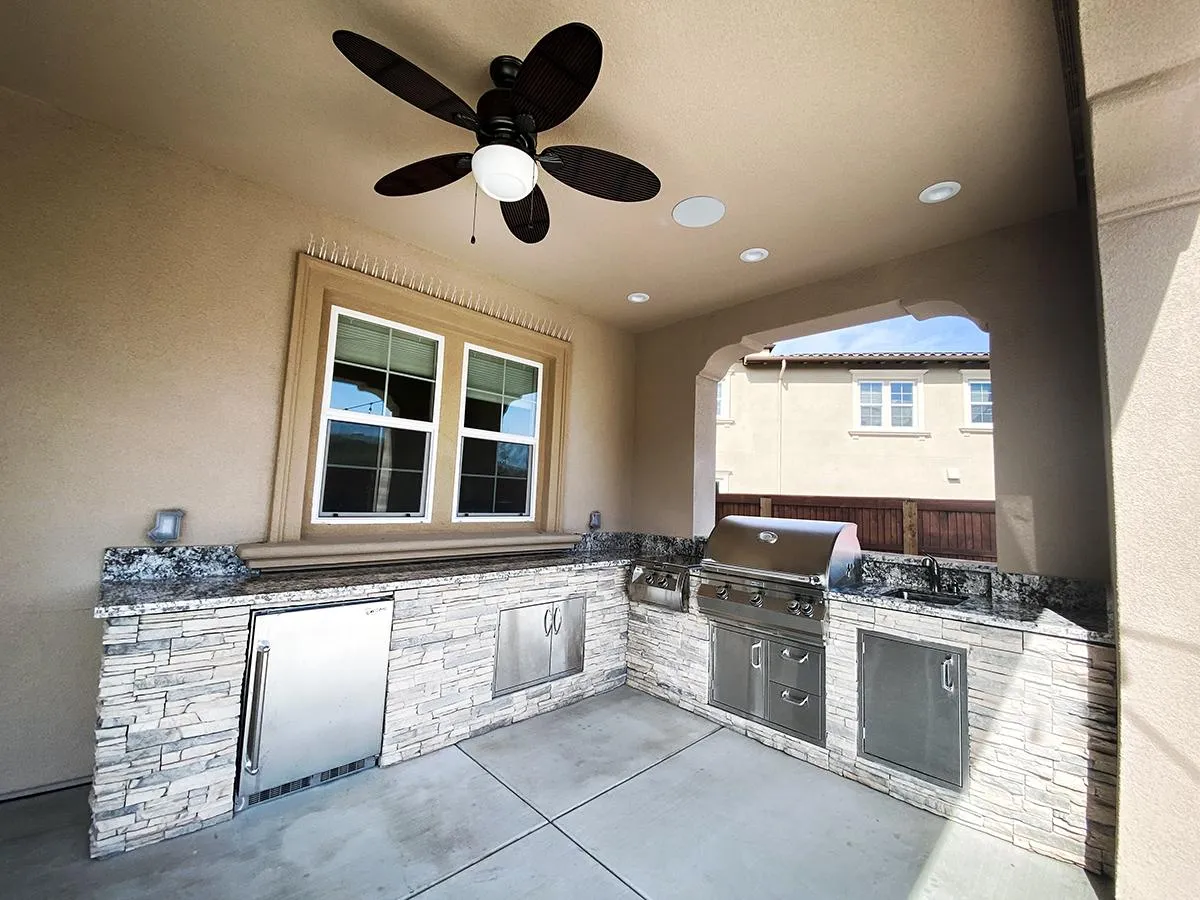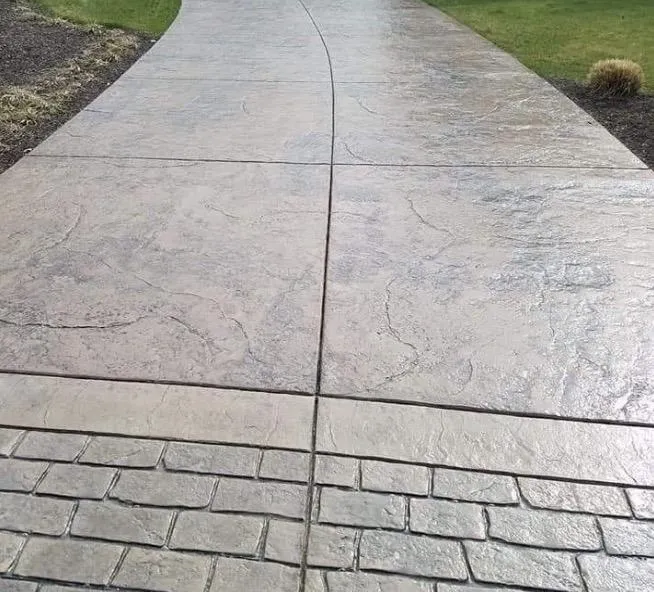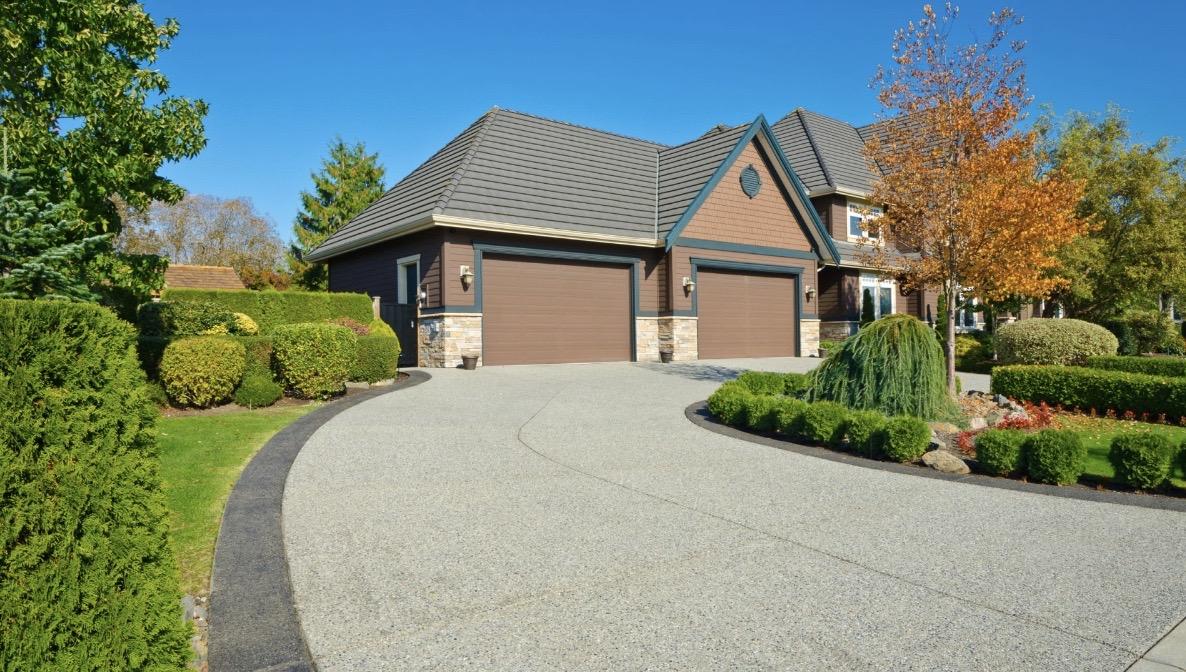Articles > Library

Choosing the Best Base for Your Outdoor Kitchen
Choosing the Best Base for Your Outdoor Kitchen
Designing an outdoor kitchen involves numerous decisions, from selecting appliances to choosing materials for countertops and cabinetry. However, one of the most critical aspects of outdoor kitchen design is determining the best base or foundation for your setup. The base serves as the structural support for your outdoor kitchen, providing stability and durability in various weather conditions. In this article, we'll explore different options for outdoor kitchen bases and discuss their pros and cons to help you make an informed decision.
Learn more: https://concreteessentialsco.com/outdoor-kitchen
1. Concrete Slab
A concrete slab is a popular choice for outdoor kitchen bases due to its durability and versatility. It provides a stable and level surface for building your outdoor kitchen, ensuring that appliances and countertops are properly supported. Concrete slabs are resistant to moisture, mold, and mildew, making them ideal for outdoor use. Additionally, concrete can be customized with various finishes, such as stamped or stained concrete, to complement your outdoor aesthetic.
Pros:
- Durable and long-lasting
- Resistant to moisture and weather damage
- Customizable with different finishes
- Provides a stable and level surface
Cons:
- Requires professional installation
- Can be costly compared to other options
- May crack over time due to settling or shifting of the ground
2. Paver Base
Paver bases are another popular choice for outdoor kitchen foundations. Made from interlocking concrete pavers, this base provides a stable and level surface for building your outdoor kitchen. Paver bases are easy to install and can be customized with various colors and patterns to create a unique look for your outdoor space. Additionally, paver bases allow for proper drainage, preventing water from pooling around your outdoor kitchen.
Pros:
- Easy to install
- Customizable with different colors and patterns
- Allows for proper drainage
- Durable and resistant to weather damage
Cons:
- Requires a solid, level surface for installation
- May shift or settle over time, requiring periodic maintenance
- Limited load-bearing capacity compared to concrete
3. Wood Frame
For a more rustic or natural look, a wood frame base may be the ideal choice for your outdoor kitchen. Wood frames are typically constructed from pressure-treated lumber or cedar and provide a warm and inviting aesthetic to outdoor spaces. They are relatively easy to build and can be customized to fit the dimensions of your outdoor kitchen. However, wood frames may require additional maintenance to protect against rot, pests, and weather damage.
Pros:
- Offers a rustic and natural look
- Relatively easy to build and customize
- Can be stained or painted to match your outdoor decor
- Provides a warm and inviting aesthetic
Cons:
- Requires regular maintenance to protect against rot and pests
- Not as durable as concrete or paver bases
- May be susceptible to weather damage over time
4. Steel Frame
Steel frames offer a modern and industrial aesthetic for outdoor kitchens while providing excellent durability and stability. These frames are typically constructed from galvanized steel or stainless steel and are resistant to rust, corrosion, and weather damage. Steel frames are lightweight yet strong, making them an ideal choice for supporting heavy appliances and countertops. Additionally, steel frames are easy to assemble and can be customized to fit the layout of your outdoor kitchen.
Pros:
- Modern and industrial aesthetic
- Durable and resistant to rust and corrosion
- Lightweight yet strong
- Easy to assemble and customize
Cons:
- May require professional installation for complex designs
- Can be more expensive than other options
- May require additional insulation to prevent heat transfer from appliances
Conclusion
When choosing the best base for your outdoor kitchen, consider factors such as durability, aesthetics, maintenance requirements, and budget. Each option has its pros and cons, so it's essential to weigh these factors carefully before making a decision. Whether you opt for a concrete slab, paver base, wood frame, or steel frame, selecting the right base will ensure that your outdoor kitchen is stable, functional, and visually appealing for years to come.
More Articles


Contact Us
Service Hours
Social Media
Articles > Library

Choosing the Best Base for Your Outdoor Kitchen
Choosing the Best Base for Your Outdoor Kitchen
Designing an outdoor kitchen involves numerous decisions, from selecting appliances to choosing materials for countertops and cabinetry. However, one of the most critical aspects of outdoor kitchen design is determining the best base or foundation for your setup. The base serves as the structural support for your outdoor kitchen, providing stability and durability in various weather conditions. In this article, we'll explore different options for outdoor kitchen bases and discuss their pros and cons to help you make an informed decision.
Learn more: https://concreteessentialsco.com/outdoor-kitchen
1. Concrete Slab
A concrete slab is a popular choice for outdoor kitchen bases due to its durability and versatility. It provides a stable and level surface for building your outdoor kitchen, ensuring that appliances and countertops are properly supported. Concrete slabs are resistant to moisture, mold, and mildew, making them ideal for outdoor use. Additionally, concrete can be customized with various finishes, such as stamped or stained concrete, to complement your outdoor aesthetic.
Pros:
- Durable and long-lasting
- Resistant to moisture and weather damage
- Customizable with different finishes
- Provides a stable and level surface
Cons:
- Requires professional installation
- Can be costly compared to other options
- May crack over time due to settling or shifting of the ground
2. Paver Base
Paver bases are another popular choice for outdoor kitchen foundations. Made from interlocking concrete pavers, this base provides a stable and level surface for building your outdoor kitchen. Paver bases are easy to install and can be customized with various colors and patterns to create a unique look for your outdoor space. Additionally, paver bases allow for proper drainage, preventing water from pooling around your outdoor kitchen.
Pros:
- Easy to install
- Customizable with different colors and patterns
- Allows for proper drainage
- Durable and resistant to weather damage
Cons:
- Requires a solid, level surface for installation
- May shift or settle over time, requiring periodic maintenance
- Limited load-bearing capacity compared to concrete
3. Wood Frame
For a more rustic or natural look, a wood frame base may be the ideal choice for your outdoor kitchen. Wood frames are typically constructed from pressure-treated lumber or cedar and provide a warm and inviting aesthetic to outdoor spaces. They are relatively easy to build and can be customized to fit the dimensions of your outdoor kitchen. However, wood frames may require additional maintenance to protect against rot, pests, and weather damage.
Pros:
- Offers a rustic and natural look
- Relatively easy to build and customize
- Can be stained or painted to match your outdoor decor
- Provides a warm and inviting aesthetic
Cons:
- Requires regular maintenance to protect against rot and pests
- Not as durable as concrete or paver bases
- May be susceptible to weather damage over time
4. Steel Frame
Steel frames offer a modern and industrial aesthetic for outdoor kitchens while providing excellent durability and stability. These frames are typically constructed from galvanized steel or stainless steel and are resistant to rust, corrosion, and weather damage. Steel frames are lightweight yet strong, making them an ideal choice for supporting heavy appliances and countertops. Additionally, steel frames are easy to assemble and can be customized to fit the layout of your outdoor kitchen.
Pros:
- Modern and industrial aesthetic
- Durable and resistant to rust and corrosion
- Lightweight yet strong
- Easy to assemble and customize
Cons:
- May require professional installation for complex designs
- Can be more expensive than other options
- May require additional insulation to prevent heat transfer from appliances
Conclusion
When choosing the best base for your outdoor kitchen, consider factors such as durability, aesthetics, maintenance requirements, and budget. Each option has its pros and cons, so it's essential to weigh these factors carefully before making a decision. Whether you opt for a concrete slab, paver base, wood frame, or steel frame, selecting the right base will ensure that your outdoor kitchen is stable, functional, and visually appealing for years to come.
More Articles

Contact Us
760-512-8091
16790 Danbury ave
Hesperia, CA, 92345
Service Hours
Mon-Fri: 8am-5pm
Sat-Sun: 8am-5pm
Social Media






